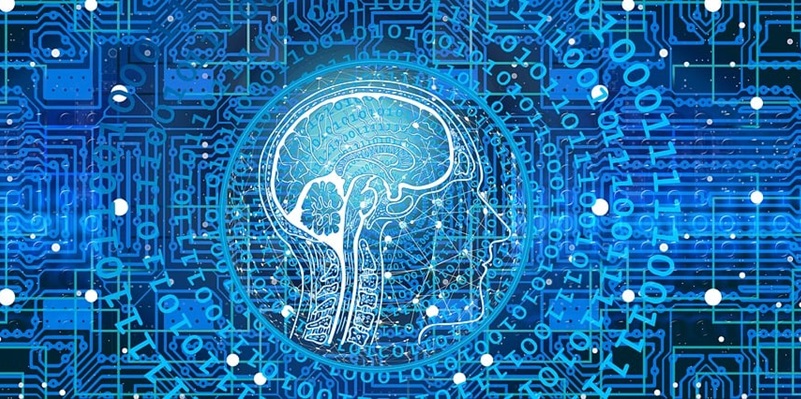The undeniable surge of digital technology has paved the way for artificial intelligence (AI), especially its generative form, to make a profound impact on the physical economy. This sector, which encompasses transportation, logistics, construction, energy, and more, is the lifeblood of our society, relying on the exchange, movement, and production of tangible goods and services. Previously seen as the domain for manual labor and traditional practices, these industries are now on the cusp of an AI-led transformation. Generative AI, specifically, is at the forefront of advancing safety protocols and streamlining operational workflows in ways previously unimaginable. While the digital landscape may have felt the initial tremors of AI innovation, the physical economy stands as the next horizon for a generative AI revolution.
The Potential of Generative AI in Physical Industries
The introduction of generative AI into the physical economy brings a windfall of opportunities for safety and efficiency improvements. By its nature, generative AI is adept at producing new data that mimics real-world complexities without the inherent risks and expenses of obtaining this data traditionally. This innovation is especially crucial in environments that are hazardous or difficult to replicate accurately, such as in heavy industrial settings or intricate urban traffic systems. The possibilities that unfold are not just incremental improvements of the status quo but a redefining of how safety measures can be proactively approached and enforced.
Implementing AI for Enhanced Safety Measures
The implementation of generative AI within the physical economy can result in remarkable advances in safety protocols. By employing AI models trained on comprehensive synthetic datasets, we can anticipate hazardous situations with increased precision. For instance, an AI designed to improve road safety could take into consideration vast amounts of synthesized traffic violation data to alert drivers of potential risks, thus preventing accidents.
Similarly, in the realm of construction, predictive models can analyze the multifaceted dynamics of a worksite to signal potential dangers well in advance. This could mean the difference between a catastrophic collapse and a routine day on the job. The AI doesn’t just respond to immediate threats; it foresees them, enabling companies to implement necessary precautions that effectively neutralize risks, enhancing worker safety and securing operational continuity.
Enhancing Operational Efficiency
The efficiency gains generated by AI extend far beyond safety improvements. In logistics, for example, the nuanced interpretation of traffic patterns, weather conditions, and delivery schedules by an AI system can lead to the optimization of routes and reductions in delays. Such efficiencies not only contribute to direct cost savings but also reduce the carbon footprint of transportation networks.
Predictive maintenance is another area where generative AI makes significant strides. By analyzing conditions and performance trends of machinery, AI can anticipate breakdowns and guide preemptive maintenance schedules. This reduces downtime and extends the longevity of critical equipment, optimizing operations and conserving resources across industrial applications. The effects ripple outwards, ensuring smoother production lines and more reliable service deliveries – a testament to how deeply intertwined safety and efficiency are within the physical economy when viewed through the lens of generative AI.
The Challenges of Quality Data and Skilled Teams
The successful integration of generative AI into any sector, especially those of the physical economy, is heavily contingent on the quality of data and the expertise of the teams involved. Accurate data annotation is an intricate part of developing AI systems—it is the foundation upon which AI’s predictive capabilities are built. For instance, Motive, an industry player that is guiding its efforts towards enhancing transportation safety and efficiency, has invested significantly in ensuring the accuracy and reliability of their data, understanding that the caliber of their AI’s performance hinges on this foundational element.
Across industries, there’s the recognition that the cultivation of diverse teams with specialized knowledge is integral for the contextual richness of AI models. These teams synergize domain expertise with technical proficiency to create powerful AI tools that are sensitive to the nuances of their respective fields.
The Broader Societal Impacts
The benefits of generative AI in the physical economy have repercussions that stretch to the societal scale. Proponents of sustainable development will find a valuable ally in AI as it can lead to more energy-efficient processes and reduced environmental degradation. If we can model the spread of a wildfire or the path of a storm, we can mitigate the impact of these natural disasters and protect communities. Similarly, if global shipping can be more precisely coordinated, it could result in fewer emissions and less traffic congestion, contributing to a cleaner environment.
Generative AI isn’t limited to corporate profits, it plays a pivotal role in the grander narrative of societal advancement. By enhancing the efficiency of renewable energy production or optimizing resource distribution during crises, AI not only bolsters the economy but also contributes to a safer, more sustainable world.
Maintaining Objectivity in Analysis and Reporting
As we delve into the realm of generative AI, it’s crucial to maintain an objective stance in our exploration and communication. The enthusiasm around potential breakthroughs, often driven by the promotional efforts of tech firms, can sometimes overshadow a sober appraisal of these technologies. It’s vital to differentiate between real-world applicability and mere speculative ideas regarding the capabilities of generative AI. For companies and society to harness the benefits of AI responsibly, grounded and unbiased evaluations are indispensable. They ensure that the integration of AI into the economic landscape is done thoughtfully, aligning with safety, efficacy, and ethical standards. Careful scrutiny will also help to prevent the pitfalls of overestimating AI’s abilities, which could lead to disruptions in employment, privacy, and security.
Moreover, such diligent assessments will inform policymakers and stakeholders in crafting regulations that foster innovation while protecting public interests. Realistic perspectives on AI will support sustainable advancements in technology, prioritizing human welfare and benefiting society as a whole. The focus must, therefore, be on fostering an environment where generative AI is developed and implemented with integrity and foresight.

